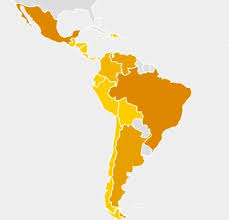Stericycle’s Misconduct: Pervasive and Systemic Bribery Schemes (Part II of III)

We always learn important compliance lessons from digging into foreign bribery schemes. The Stericycle bribery misconduct is instructive because of its pervasive operations with the participation of numerous executives and employees, and third party vendors. In the end, we always come down to a basic truth – a fish rots from the head, and in this case, it is clear that Stericycle’s Latin American division’s culture rotted and acted in accordance with executive direction to engage and advance the business through bribery.
Stericycle’s LATAM executives directed and monitored the country specific businesses, including the payment of hundreds of bribery payments to build Stericycle’s business.
Brazil
Between 2011 to 2016, Stericycle made bribery payments to foreign officials employed by at least 25 separate government or state-owned agencies or instrumentalities. Stericycle earned at least $13.4 million in profits from corrupt bribery payments.
The LATAM and Brazil executives maintained a spreadsheet with detailed information tracking the bribes, and labeled these payments as necessary for “debt collection services.” The Brazil executives directed employees to deliver cash payments to secure priority from government agencies for payment of Stericycle invoices. The actual cash deliveries were made by third-party intermediaries. The bribery payments were calculated based on a percentage of the underlying contract and invoice amount.

The Brazil finance employees prepared bank orders in the names of the sales employees who would retrieve the money from the bank and deliver the cash funds through an intermediary. For example, on March 30, 2015, after receiving payment from a government agency for an outstanding invoice, a Brazil sales employee requested approval from a Brazil executive to pay a bribe to a government official from that agency. After securing such approval, a finance employee made the funds available – in this case approximately $13,200, which represented approximately 20 percent of the invoice amount, which was ultimately paid to a government official through an intermediary.
Brazil executives directed finance employees to conceal the bribery payments by making bribes appear to be legitimate expenses. The finance employees used several schemes to cover up the payments, including use of inflated invoices from vendors that provided legitimate services. But this method became more blatant when finance employees enlisted a number of vendors solely for the purpose of extracting money to fund the bribery scheme through the submission of fake invoices. None of the vendors provided any services to Stericycle. In its books, the invoices and payments were described falsely as “debt collection services.” The finance employees tracked the fake invoice payments on a spreadsheet.
Mexico
Between 2011 and 2016, Stericycle paid bribes to foreign officials from at least 15 separate agencies, state-owned businesses or instrumentalities in Mexico in order to secure priority in payment of invoices and avoid potential penalties or fines. Stericycle earned at least $3.7 million in profits from these bribery payments.

As in Brazil, the payments were made under the direction and supervision of the two LATAM executives, as well as numerous Mexico executives. In general, monthly payments were made to various Mexico officials to state-owned and controlled hospitals and other government entities in the amount equal to percentage of the contract amounts. In referencing the illegal payments, executives and employees referred to them as “little pieces of chocolates” or “IP payments.”
Mexico executives and finance officials maintained spreadsheets reflecting the bribe payments. LATAM executives reviewed the spreadsheets regularly based on a “monthly amount summary.” The spreadsheets included listings of the vendors employed to submit invoices for sham services that were never provided.
The LATAM executives participated in a monthly Mexico Executive Committee meetings during which they reviewed financial records that included bribery payments. Stericycle employees employed over 45 vendors to submit fake invoices. The Mexico vendors then passed the money generated from the fake invoices to Mexico finance employees to pay the bribes and some did so directly to government officials. The bribery spreadsheets included false entries to identify the fake services as “forklift rental,” “publicity,” and “promotional products.”
Argentina

Between 2011 to 2016, Stericycle made bribery payments to Argentina government officials to secure priority payment of invoices and earned at least $4.4 million in profits from corrupt payments. These payments were made at the direction or knowledge of the LATAM executives, along with Argentina executives and local managers. A specific spreadsheet was maintained by the LATAM executives under the false heading of “Top 20 SG&A expenses by country.” This spreadsheet broke down the payments by country – Brazil, Mexico and Argentina.
Bribery payments were calculated and approved by Argentina country management and paid by sales employees. Once approved, the sales employee obtained the cash from the Buenos Aires office and delivered the payment to the government official. Argentina officials referred to bribery payments as “alfa” and “alfajores” (a popular cookie).















